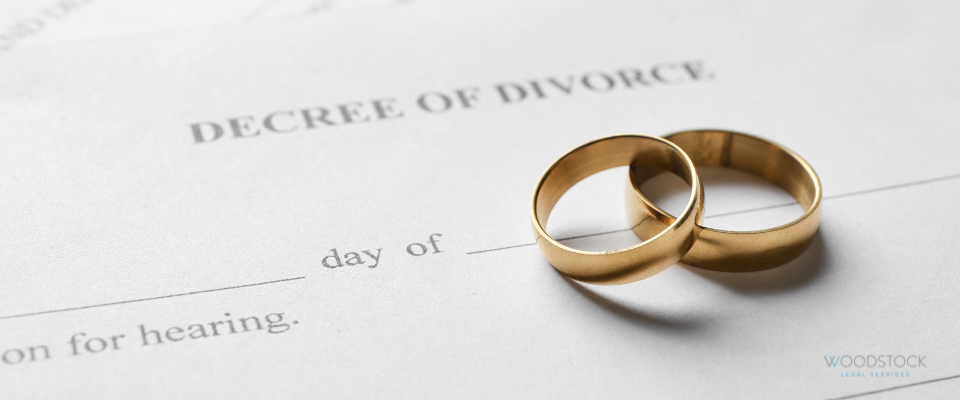Restrictive Covenants and the Supreme Court
November 11, 2020
Restrictive Covenants and the Supreme Court
For the first time ever, the Supreme Court has decided on an appeal relating to s84 of the Law of Property Act 1925 (LPA 1925). S84 gives the Upper Tribunal discretion to discharge or modify restrictive covenants where one or more specified grounds are satisfied to enable development of burdened land. In this case, the Supreme Court has held that the threshold to exercise such discretion hadn’t been satisfied and so the primary remedy is an injunction to remove the offending development.
Section 84 powers
Millgate Developments (Millgate) were engaged to build 13 properties for a registered provider of social housing on a plot of undeveloped land. The land was burdened by a covenant that prohibited any use other than for the parking of vehicles. The beneficiary of the covenant was a neighbouring children's hospice, the Alexander Devine Children's Cancer Trust (the Trust). The Trust objected to the development but Millgate went ahead in order to comply with its s106 agreement which required the provision of social housing as a condition of planning consent for a high-end development being constructed elsewhere. Crucially, the site adjacent to the hospice was not the only potential space for the build.
Millgate argued that the social housing development was in the public interest and relied upon the grant of planning permission in support. Millgate then developed in breach of covenant and only later brought an application under s84 LPA 1925 seeking retrospective modification based on section 84(1)(aa), which gives the Tribunal discretion to discharge or modify a restriction where it impedes a reasonable use of the land in circumstances where either:
1. it does not secure any practical benefit of substantial value or advantage to the beneficiary; or
2. the restriction is contrary to the wider public interest with money being adequate compensation.
The Upper Tribunal accepted that there was practical benefit of substantial value to the Trust in preventing use of the land for any purpose other than parking. In this context, the practical benefit conferred by the covenant was not the ability to use the land for parking but rather protection of the privacy and seclusion of the hospice environment by ensuring that no development could take place. However, the Upper Tribunal held that the second limb of ground 84(1)(aa) was satisfied given the immediate and important need for affordable housing to be made available. Essentially, the public interest in having the affordable housing was more important than keeping the land undeveloped.
Court of Appeal approach
The Court of Appeal disagreed with the Upper Tribunal, an important point being that Millgate acted in flagrant disregard for the covenant, in full knowledge of its existence and without going through the proper process provided for by s84.
They made it clear that the existence of planning permission did not mean that there had been an objective assessment of public interest – this still had to be assessed within the parameters provided for by section 84. Millgate had deliberately circumvented the proper procedures for testing the covenants by failing to apply to the Upper Tribunal prior to building (the court did not go so far as to rule out any possibility of applying for modification retrospectively in less clear circumstances).
In a decision handed down on 6 November 2020, the Supreme Court upheld the decision of the Court of Appeal.
Lord Burrows, who gave the leading judgment, referred to "two omitted factors" which the Upper Tribunal erred in law by failing to consider. These were:
1. Had Millgate respected the rights of the Trust by applying for planning permission to develop an alternative plot within its land bank (which did not benefit from the covenant), then an application to modify under s84 would not have been required. The entire dispute could reasonably have been avoided i.e. modification was not necessary to deliver the public benefit advanced by Millgate.
2. Had Millgate respected the rights of the Trust by applying under s84 before starting to build, it is likely that Millgate would not have been able to satisfy the "contrary to public interest" limb of section 84(1)(aa). This is because Millgate would have been met with the objection that planning permission would be granted for affordable housing on alternative unencumbered land so that the upholding of the restriction would not be contrary to the public interest.
The Supreme Court therefore held that it follows that the effect of Millgate's cynical breach of covenant was to fundamentally alter the position in relation to the public interest.
Conclusion
This case demonstrate the importance of seeking to discharge any restrictive covenants prior to commencing works and the dim view that courts take where a developer acts in a high-handed or cynical manner.
A decision in favour of Millgate would have set a precedent to enable modification of almost any covenant where the developer can demonstrate a degree of public benefit in its scheme. The Supreme Court decision shows that demonstrating public benefit does not guarantee modification.
The conduct of Millgate has without doubt, had an impact on the Court’s determination of the case. If another developer had applied for modification prior to carrying out the development and if there wasn’t an alternative unburdened plot of land available for use, the outcome may have been much different.
Contact Us
News & Insights

The legal profession has never been an easy road for women. It’s been a world of glass ceilings, closed doors, and outdated structures. At Woodstock, we don’t sit around as “that’s the way things have always been”, we’re looking to challenge the traditional law firm model. This International Women’s Day 2025 , we’re embracing the theme "Accelerate Action" by celebrating the women in our firm doing exactly that: reshaping the legal industry, breaking down barriers, and proving that flexibility can coincide with legal excellence. Women Leading the Way at Woodstock Law has traditionally been a man’s game. But here, women are leading from the front, balancing expertise, leadership, and life in a way that challenges the industry's outdated norms. Carly Jermyn, our CEO , runs a thriving law firm while raising three boys. She knows firsthand that leadership and family life aren’t mutually exclusive. Natasha Boyland, our Head of Risk & Operations , keeps our firm at the peak of governance and compliance. Anna Hughes, our Head of Landlord & Tenant , leads an award-winning team, mentors the next generation, and pioneers a fresh approach to law. At every level of Woodstock, women are leading with strength, innovation, and impact, proving that talent, not tradition, should define success in law. Flexibility That Works for Everyone At the current rate of progress, full gender parity is still five generations away. That’s 2158 – long after any of us will see it. By prioritising flexibility and choice, we’re dismantling the rigid structures that hold women back. Our model works for: Working parents balancing careers with family life. Professionals who want control over their time without sacrificing ambition. Those easing into retirement, choosing to scale back without being forced out. But flexibility isn’t just for women. Yes, we have many women in leadership and consultancy roles at Woodstock, and, naturally, this model has been a game-changer for working mothers. Our model provides the flexibility to balance careers with family life. But what about working fathers? We’ve seen more and more men take the leap into consultancy because it allows them to support their partners’ careers too. In many industries, women’s progress has been stalled by the expectation that they will carry the heavier load at home. When men embrace flexible working, it redistributes the balance, making it possible for more women to step into leadership, grow their businesses, or return to careers they love. At Woodstock, we’re seeing this shift firsthand. Men chose consultancy to share responsibilities at home, be more present with their children, or give their partners the space to focus on their careers. It’s a shift that benefits both men and women – ultimately, the entire legal industry. An equal legal profession is built on opportunity, balance, and the freedom to succeed without compromise. When careers are shaped around real lives, rather than outdated expectations, everyone benefits. We’re more likely to achieve gender equality when we all take action – it’s not a battle for women to fight alone. What’s Next? We Keep Moving Forward The legal industry is changing. But not fast enough. This IWD 2025, we reaffirm our commitment to: Backing women at every stage of their careers – mentoring, supporting, and bringing more of them into leadership. Keeping flexibility at the heart of what we do, so legal careers work for real lives, not outdated expectations. Encouraging more men to step up as active participants in a fairer system. That means embracing flexibility, sharing responsibilities at home, and supporting the women they work alongside. To the incredible women at Woodstock, in law, and beyond, and those supporting, and pushing for change alongside them - Happy International Women’s Day.

Property fraud is a growing concern for homeowners. Fraudsters constantly find new ways to steal property ownership, commit mortgage fraud, or sell property without the rightful owner’s knowledge. If you own a residential property – whether you live in it or rent it out – it’s important to take practical steps to protect yourself. In his latest insight, Arvinder Samra , Consultant Solicitor at Woodstock Legal Services, explains the risk of property fraud and how to safeguard your home or investment property. What Is Property Fraud and Who Is Most at Risk? Property fraud happens when criminals take control of a property by stealing an owner’s identity or forging legal documents. Once they gain access, they may attempt to: Sell the property without the owner’s consent Take out a mortgage or loan against the property Transfer ownership to another name Some properties are at higher risk of fraud, including: Homes that are empty or rented out Mortgage-free properties Properties owned by elderly or vulnerable individuals Unregistered properties Taking the right precautions can help you prevent fraud before it happens. Register for the Land Registry Property Alert Service One of the simplest and most effective ways to protect your property is by signing up for the Land Registry Property Alert Service . This free service notifies you whenever an application is made to change the title of your property, allowing you to spot fraudulent activity early. Why This Matters If someone attempts to change ownership or take out a mortgage on your property without your consent, you will receive an alert. This early warning system gives you the chance to stop fraud before any damage is done. Who Should Register? Every property owner should sign up, especially: Landlords with rental properties Homeowners with mortgage-free properties Anyone who owns multiple properties or does not live at their registered address For those with elderly or vulnerable family members, it’s also worth assisting them with registration to keep their homes protected. How to Register You can register up to 10 properties for free through the GOV.UK Land Registry Property Alert Service . Keep Your Address Updated with the Land Registry The Land Registry uses the address on file to contact property owners, mortgage lenders, and other registered parties. If your details are outdated, you could miss important fraud warnings. Why This Matters If you move house and forget to update your details, the Land Registry may send important notices to an old address, leaving you unaware of fraudulent activity until it’s too late. How to Update Your Details You can provide up to three addresses for official contact purposes, including: A UK or overseas postal address A DX (Document Exchange) address An email address This is particularly important for landlords and second-home owners who do not reside on their property. Keeping your contact details up to date ensures you receive legal notifications promptly. Verify All Communications to Avoid Fraudulent Emails Fraudsters frequently target property transactions , using email scams and phishing techniques to deceive homeowners and investors into transferring money to the wrong account. Common Warning Signs You receive an unexpected request to transfer funds. The sender’s email looks similar to a trusted contact but has minor differences. The bank details provided do not match those previously supplied by your solicitor. How to Stay Safe Always verify bank details over the phone with your solicitor before making payments. Do not click on links or open attachments from unfamiliar emails. Be extra cautious if you are in the process of buying or selling a property. If you receive an email with new payment instructions, call your solicitor to confirm before making any transactions. Place a Restriction on Your Property Title For an extra layer of protection, you can place a restriction on your property title. This ensures that no one can sell or mortgage your property without a solicitor or conveyancer verifying your identity. Who Should Consider This? A restriction is beneficial for: Property owners who do not live at the property Owners of mortgage-free homes Anyone looking for additional legal safeguards How to Apply You can submit a restriction application through HM Land Registry (Form RX1) . This step can significantly reduce the risk of fraudulent property transactions and prevent criminals from taking out a mortgage in your name. Protect Your Home and Investments with Expert Legal Advice Property fraud is a growing concern, but taking the right precautions can help secure your property and prevent criminals from gaining access. At Woodstock Legal Services, we provide expert guidance on residential property law, ensuring that homeowners and landlords have the protection they need. If you’re concerned about property fraud, need help updating your Land Registry details, or want to apply for a title restriction, our team can assist you. For tailored legal advice, contact Arvinder Samra by emailing a.samra@woodstocklegalservices.co.uk or complete the form below.

For years, family court hearings have been private, with rules preventing journalists from reporting on what happens inside. But since 27th January 2025, that has changed. Accredited journalists and legal bloggers can now report on certain family court cases involving children , provided they follow strict rules under a Transparency Order . So, what does that mean for families going through the courts? Karen Layland , Solicitor at Woodstock Legal Services, explains how this change works, what’s allowed, and what to watch out for. What is a Transparency Order? A Transparency Order allows journalists and legal bloggers to: Attend family court hearings Speak to families involved in a case Request and quote from court documents Report on what they see and hear in court But there’s a key condition: families must remain anonymous. That means no names, school details, employer details, photos, or anything else that could identify them. Before this change, journalists could sit in on hearings but had no right to report on what was said. The aim now is to help people understand how the family courts work while still protecting the people at the heart of these cases. Can You Speak to a Journalist About Your Case? The short answer? Yes, but only under strict conditions. You are not obliged to speak to a journalist. If you do, it must be with someone who has already attended a hearing in your case. You cannot share any documents unless a Judge has given permission. While journalists now have more freedom to report, parties involved in a case cannot. That means you must not post details of your case on social media, even if a journalist has already written about it. Breaching this rule could have serious legal consequences. How Does This Work in Practice? Will Journalists Be Allowed to Report on Every Case? Journalists and legal bloggers must first apply for a Transparency Order, which will outline: What they can and cannot share Any restrictions imposed by the court Steps required to protect anonymity In most cases, these orders will be granted unless there is a strong reason not to allow reporting. If a party objects, the Judge can: Prevent reporting altogether Impose stricter restrictions Allow reporting to continue under the original order The courts have made it clear that denying a Transparency Order will be rare. How Will Privacy Be Protected? While this is a major step towards transparency, it does not mean families lose their right to privacy. The following protections remain in place: No names of the people involved can be published. No identifying details—such as schools, employers, or locations—can be reported. In cases involving sexual abuse, details of the abuse cannot be shared. These rules are designed to reassure families that their most personal and difficult moments won’t be exposed while still giving the public a clearer picture of how the family courts operate. What About Financial Cases in Family Court? For now, these changes apply only to cases involving children. Financial cases, such as divorce settlements and financial disputes, are still under review. Further updates are expected in due course. What If You Are Worried About This Change? Understandably, families going through the courts may feel uneasy about journalists being allowed to report on their cases. Family law is already emotional and stressful, and the thought of details being made public could add to that pressure. However there are still strong safeguards in place to protect privacy, and the court can prevent reporting in exceptional circumstances. If you’re unsure how this change might affect you, it’s always worth seeking advice from a specialist family solicitor . Specialist Advice from Woodstock Legal ServicesIf you are involved in a family court case and have concerns about Transparency Orders, we can help.

Making important legal decisions can be overwhelming, especially in emotionally charged family law matters. But what happens if you are concerned that your former partner, spouse, or family member lacks the capacity to make these decisions? In her latest insights, Karen Layland, Solicitor at Woodstock Legal Services, explains how mental capacity is assessed in family cases and what support is available to ensure fair legal proceedings. What Is Mental Capacity in Family Law? Under the Mental Capacity Act 2005 , everyone is assumed to have the capacity to make decisions unless proven otherwise. However, mental capacity is not a fixed state – it depends on the specific decision being made and the timing of that decision. For example, someone might have the capacity to agree to a marriage but not understand the financial implications of divorce. A person is considered to lack capacity if they are unable to: Understand relevant information about the decision. Retain that information long enough to make a decision. Weigh up the information as part of the decision-making process. Communicate their decision in any form (verbally, in writing, or using non-verbal communication). It's important to note that making a poor or unwise decision does not mean someone lacks capacity. When Is Capacity Important in Family Law Cases? Mental capacity can impact various aspects of family law proceedings , including: Capacity to Marry or Enter a Civil Partnership The legal threshold for the capacity to marry is relatively low. A person needs to understand the basic nature of marriage and its obligations, but they do not need to comprehend the full legal or financial consequences of marriage or divorce. If a person lacks capacity at the time of marriage, the union may be voidable in court. Capacity to Enter a Prenuptial, Postnuptial, or Separation Agreement Signing legally binding agreements like prenuptial or postnuptial contracts requires a higher level of capacity than marriage itself. If a person does not have the capacity to understand the agreement when signing, a court may choose not to enforce its terms. Capacity to Litigate (Participate in Legal Proceedings) If an individual lacks the capacity to engage in legal proceedings, a litigation friend (such as a trusted relative or professional) may be appointed to act on their behalf. This is particularly relevant in divorce and financial disputes where one party may struggle to understand legal processes or provide instructions to their solicitor. How Can You Support a Family Member with Capacity Concerns? If you are worried about a loved one’s ability to make decisions during family proceedings, consider the following steps: Seek Medical Advice – A GP or specialist can assess whether they may lack the capacity for certain decisions. Consider Therapeutic Support – Counselling or therapy may help them manage stress and process their situation more effectively. Obtain Legal Advice – Speaking to experienced family solicitors ensures they understand their legal rights and options. Accompany Them to Meetings – Emotional support can make a huge difference, especially in difficult discussions about separation or finances. At Woodstock Legal Services , we offer a free initial interview to discuss concerns and explore the best course of action for your family’s unique situation. What Happens If Capacity Is in Question? If capacity is disputed in a family case, the court may request a formal capacity assessment from a medical professional. This assessment will determine whether the individual can proceed with legal matters independently or if additional support is required. In some cases, the Court of Protection may become involved in deciding whether an individual has the capacity to make specific life-changing decisions. However, the family court itself deals with most issues related to marriage, divorce, and financial settlements. Specialist Advice from Woodstock Legal Services If you have concerns about mental capacity in a family law matter—whether for yourself, a former partner, or a loved one—getting the right legal support can provide clarity and reassurance.

Woodstock Legal Services is proud to announce its shortlisting for the Business Growth Award at the Modern Law Awards 2025 . This recognition celebrates not only our remarkable achievements over the past year but also our commitment to redefining what a modern law firm can be. A Fresh Approach to Law Founded with a mission to do things differently, Woodstock Legal Services has grown from a vision shared around a kitchen table into a thriving law firm. At the heart of our success is “a fresh approach to law” – delivering tailored, actionable legal advice in plain English, without jargon. Transformational Growth Over the Last Year The past 12 months have been nothing short of transformational. During this time, we’ve experienced: A significant increase in new matters opened. A substantial rise in revenue. Remarkable growth in our team size. This growth is not just about numbers. It reflects our focus on excelling rather than simply expanding, remaining true to our values, and ensuring every client benefits from our personal, human approach. The Success of Our Innovative Consultancy Model Our innovative consultancy model has been a key driver of success. Woodstock Legal Services provides a home for high-quality lawyers, enabling them to deliver exceptional client service without the constraints of a traditional law firm structure. By creating a supportive, flexible environment, we allow our team the time and space to deliver expert advice and build strong client relationships. Industry-Leading Expertise The landlord and tenant team, led by Anna Hughes, has been a standout success. Recognised as leaders in the field, the team has secured large-scale contracts and won the Best Landlord Legal Services Provider award at the National LIS Awards for the third consecutive year. Beyond this, we’ve strengthened our expertise in employment law , family law , dispute resolution , commercial and contract law , and private client services while continuing to lead in residential and commercial property . Committed to Our Community This shortlisting recognises not just the progress we’ve made but the way we’ve achieved it. Our thoughtful, deliberate growth strategy is built on providing exceptional client service, creating a supportive team environment, and giving back to the communities we serve. From raising funds for YMCA Bournemouth’s Big Sleep to hosting local events like the Canford Cliffs Halloween Trick or Treat, we’ve made a positive impact both in and beyond the legal sector. A Note from Our CEO Carly Jermyn , CEO of Woodstock Legal Services, shared her thoughts on the recognition: "This shortlisting is a milestone for Woodstock Legal Services. It reflects the hard work of our team and the trust our clients place in us. Our consultancy model allows us to provide top-notch services while creating a home for talented lawyers. We’re proud to lead the way in redefining what a law firm can be.” Celebrating Innovation in the Legal Sector The Modern Law Awards celebrate the pioneers shaping the future of the legal sector. This shortlisting reinforces Woodstock Legal Services’ position as a firm committed to responsible, sustainable, and innovative growth. We look forward to the awards ceremony and extend our congratulations to all the other finalists !

National Compliment Day is a great reminder of the power of positivity in managing people. In this insight, Tony Bertin , one of our expert employment solicitors , shares how taking a constructive and fair approach to performance management can strengthen your team and protect your business. The Value of Genuine Recognition We all want to feel appreciated for the work we do – but let’s be honest, empty praise doesn’t cut it. Imagine you’re at breakfast: complimenting someone on burnt toast when they know it’s terrible doesn’t help anyone. Instead, focus on something genuine and true, like how great their coffee is. The same rule applies at work. When recognition is genuine and specific, it has real impact. It shows that you’re paying attention, that you value the effort behind the result, and that your praise is earned. Pair this positivity with constructive feedback where needed, and you’re creating a culture where people feel supported, respected, and motivated to improve. How to Keep Performance Reviews on Track Appraisals need to be more than just a tick-box exercise. To be fair and effective, make sure you: Follow a Structure: Use a consistent format for everyone so the process feels fair. Stay Objective: Focus on measurable results and evidence. Be Consistent: Treat everyone the same – no favourites, no exceptions. When things aren’t going well, dig into the why. Is the employee dealing with a personal issue? Are there problems with their workload or team? Asking the right questions and offering support can turn things around. Lessons from Employment Tribunals Our experience with tribunals has taught us one clear lesson: inconsistent performance management can land employers in hot water. If an employee’s performance dips, you need to understand why. Is it something personal? A clash with management style? If a dismissal goes to a tribunal, appraisals are often the first thing examined. How did someone go from “outstanding” to “underperforming” in a year? Without clear, honest reviews and proper records, it’s tough to explain – and even tougher to defend. Tribunals can be stressful and expensive. Solid, consistent performance management saves time, money, and hassle in the long run. What’s Changing in Employment Law Big changes are coming, and businesses need to be ready. The upcoming removal of the two-year service rule for tribunal claims means every performance decision will be under more scrutiny. With probationary periods becoming more important, now is the time to tighten up your systems. Here’s what you can do: Get Clear Policies in Place: A structured, fair appraisal system is essential. Train Your Managers: Make sure they’re confident in giving feedback and handling tricky conversations. Keep Records: Document everything – from reviews to follow-ups – so you’ve got a clear paper trail if questions ever arise. By getting these basics right, you’ll not only protect your business but also create a workplace where people feel supported and valued. Specialist Advice for Employers from Woodstock Legal Services Managing performance isn’t easy, but you don’t have to do it alone. With expert advice from our team of employment solicitors , you’ll feel confident tackling any staffing challenges that come your way.

Understanding the legal process of ending a marriage or civil partnership can feel overwhelming. Karen Layland , Solicitor at Woodstock Legal Services, provides a clear, step-by-step guide to help you approach this journey with confidence. Our insights ensure you’re informed and supported at every stage, making the process as smooth as possible during what can be a challenging time. Eligibility to End a Marriage or Civil Partnership Before starting the process, it’s essential to ensure you meet the eligibility requirements. To apply for a divorce or dissolution in the UK, you must: Be in the relationship for at least one year: Applications cannot be submitted before this time frame. Prove that the relationship has irretrievably broken down: This is the sole legal ground for divorce or dissolution. Provide a valid relationship certificate: If your certificate is in another language, you’ll need to provide a certified translation. Show proof of any name changes (if applicable): This might include a marriage certificate, deed poll, or other official documentation. If you’re unsure whether you meet these criteria, seeking professional legal advice can save you time and stress. Alternatives if You’re Not Yet Eligible If you’ve been in the relationship for less than a year, there are still options to address your situation: Apply for a legal separation: This allows you to live apart without formally ending the marriage or partnership. Apply for an annulment: only available in limited circumstances. Use a deed of separation or post-nuptial agreement: These documents can outline arrangements for finances, property, and children during your separation, offering clarity and structure without formally dissolving the relationship. These alternatives can also be helpful if you’re unsure whether ending the relationship is the right decision or need more time to make arrangements. Starting the Process Once you’re eligible, it’s time to start the formal process of ending your relationship. Understanding the steps involved can make the experience less daunting. Sole vs. Joint Applications The first decision to make is whether to apply jointly with your partner or proceed alone: Joint Application: A joint application is ideal for amicable separations where both parties agree to the dissolution and there’s no risk of domestic abuse. It’s a cooperative approach that can help maintain a sense of fairness and reduce conflict. Sole Application: A sole application may be more suitable if you believe your partner won’t cooperate or respond in a timely manner. This approach allows one party to move forward independently, ensuring the process doesn’t stall due to a lack of response. Required Information To begin, you’ll need at hand all the necessary information to include the following details: Both parties’ full names and current addresses. An email address for your partner (if possible), as this enables faster communication from the court. If you’re working with Woodstock Legal Services, we’ll handle the application for you and ensure all the necessary details are provided correctly. Court Fees and Financial Assistance The cost of applying for a divorce or dissolution is £593. While this fee can seem daunting, there are options for financial assistance: Low-income support: You may be eligible for help with court fees if you receive certain benefits or are on a low income. Application process: If you’re applying for financial help, you’ll need to complete a separate form by post or apply online. If you receive approval, you’ll either pay a reduced fee or none at all. Handling through our services: If you’re working with us, we can guide you through the process, ensuring all forms are completed accurately. We can also handle payments from funds on account to make things easier for you. What Happens If the Other Party Does Not Respond In some cases, the other party may not respond to the application. When this happens, additional steps are required to ensure the process moves forward: Court Bailiff or Personal Service: A court bailiff can deliver the documents, or you may arrange for a private process server to serve them directly. Substituted Service: If personal service isn’t possible, you can request that the court allow documents to be served via alternative methods, such as email or social media. Dispense with Service: In extreme cases where the other party cannot be located, you can apply to dispense with service altogether. Each of these options has its own costs, timelines, and requirements. At Woodstock Legal Services, we’ll advise you on the most suitable approach for your situation and guide you through every step. Specialist Advice from Woodstock Legal Services If you’re thinking about starting a divorce or dissolving a civil partnership, our friendly and experienced family lawyers are here to help.

Making plans for your property is an important part of looking after your family’s future. Many parents consider gifting their home or a share of it to their children, whether for practical reasons or as part of estate planning . It’s a generous gesture, but there are a few things to think about before making the decision. Recently, we had two conversations about this very topic. Both were quite different, but they showed just how much a little legal advice can help in making the best choice. Why Do You Want to Gift Your Property? Everyone has their own reasons for wanting to transfer property to their children, and these reasons can shape the best approach. In one case, a retired gentleman wanted to gift his property to avoid inheritance tax. However, after looking at his circumstances, it turned out his estate wouldn’t have been subject to inheritance tax anyway. He also hadn’t realised that if he continued living in the property without paying rent to his children, the “gift with reservation of benefit” rules would still apply, and the home would remain part of his estate for inheritance tax purposes. In another case, a mother wanted to gift a share of her home to her daughter, who was moving in with her. She was aware of the rules, like the seven-year rule and the capital gains tax exemption for principal residences. But her situation had an added layer – her daughter was leaving a difficult marriage and planning to start divorce proceedings. While it’s unlikely that the gifted share of the property would be considered a marital asset, transferring it before the divorce was officially underway could have introduced complications. After discussing the options, she decided to wait for the right moment to make sure her daughter was protected. Things to Think About When Gifting Property Gift with Reservation of Benefit (GROB) If you gift a property but continue to live in it without paying market rent, it could still be treated as part of your estate for inheritance tax purposes. It’s worth understanding how this could affect your plans. The Seven-Year Rule Gifts made during your lifetime are potentially exempt from inheritance tax if you live for seven years after making them. However, if you pass away within those seven years, the gift could be subject to tax, depending on how much time has passed since it was made. Capital Gains Tax (CGT) If the property you’re gifting is your main home, it’s usually exempt from capital gains tax. However, if it’s a second property or a rental property, CGT may apply, and it’s calculated based on the property’s value at the time of the gift. When Family Circumstances Add a Personal Layer Gifting property often involves more than just tax or financial considerations. Family dynamics can play a big part in the decision. In the case of the mother and daughter, understanding the emotional and legal context of their situation was vital. The mother’s desire to help her daughter was clear, but timing was everything to make sure the gift didn’t create unintended issues during divorce proceedings. This is why it’s so important to share the full picture with your legal advisor. Every family’s circumstances are different, and careful planning can help ensure the best outcome for everyone involved. Taking the Next Steps Gifting property is a generous act, but it’s not something to rush into. There are rules and potential pitfalls to consider, and getting the right advice can make a big difference. Whether you’re thinking about inheritance tax, capital gains, or how a change in ownership might affect your family, having a clear plan in place is always a good idea. Specialist Advice from Woodstock Legal Services At Woodstock Legal Services, our team can help with property gifting, inheritance tax planning, and wills and probate matters. We take the time to understand your goals and provide advice that works for you and your family.

Ending a relationship, whether a marriage or civil partnership, is a significant decision that takes careful thought and planning. Karen Layland , Family Solicitor at Woodstock Legal Services, shares her insights into the key considerations before taking the formal step to end a relationship. This guide is here to offer clarity and support during this emotional time. Assessing Whether the Relationship Has Irretrievably Broken Down Before initiating proceedings, it’s crucial to evaluate whether your relationship has truly reached an end. Ask yourself: Have all attempts to rebuild trust and resolve conflicts failed? Would professional counselling be beneficial, even if only one party believes it might help? Knowing where to seek support and understanding the costs involved can be pivotal. Exploring Alternative Solutions If you are unsure about ending the relationship, consider alternatives that provide clarity and structure without finality: Deed of Separation A deed of separation is a formal agreement that outlines arrangements for children, finances, and property while acknowledging the breakdown of the relationship. It can act as a roadmap for future proceedings if reconciliation is not achieved. Post-Nuptial Agreement Similar to a pre-nuptial agreement but signed after marriage or civil partnership. This document helps parties agree on the division of assets and responsibilities should the relationship ultimately end, reducing tension and uncertainty. Communicating With Your Partner Deciding how to inform your partner about your decision is a sensitive matter. It can be helpful to: Discuss the commencement of proceedings together to avoid unnecessary tension. Consider issuing joint proceedings if you both agree. Planning for the Practicalities Ending a relationship can bring immediate challenges. Plan ahead to reduce stress: Children: Decide how and when to communicate with them, and plan living arrangements. Finances: Determine how household bills and joint accounts will be managed. Businesses: Ensure operations are not disrupted during the transition. Seeking Legal Advice Working through these considerations can feel much simpler with the right support. At Woodstock Legal Services, we offer a free, no-obligation consultation to: Understand your unique situation. Outline the divorce or dissolution process. Provide tailored advice on financial and parental arrangements. Specialist Advice from Woodstock Legal Services If you’re considering ending your relationship, our experienced family solicitors are here to offer support and guidance. Reach out to Karen Layland , Solicitor, at k.layland@woodstocklegalservices.co.uk or complete the form below for expert advice you can trust.

